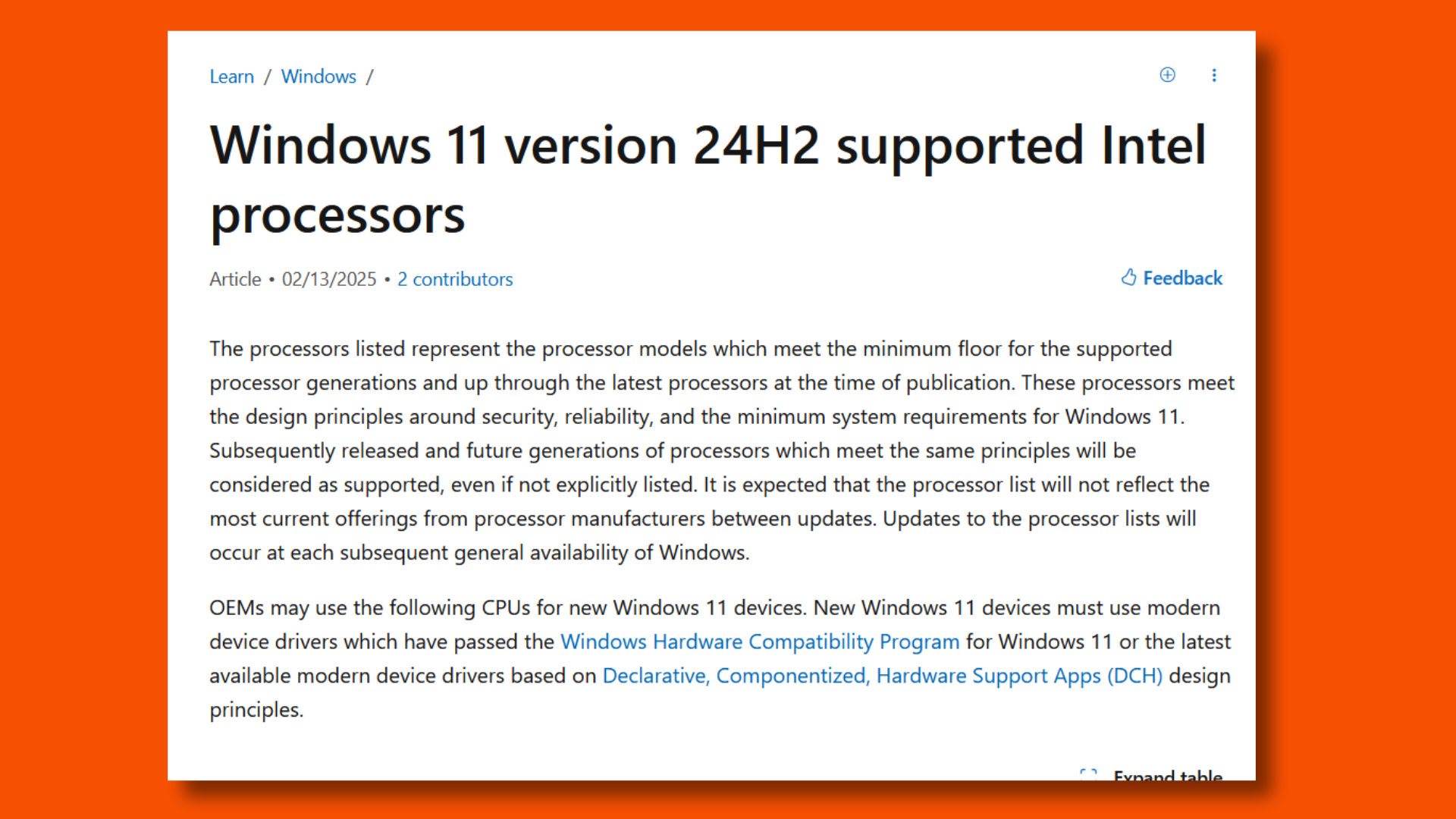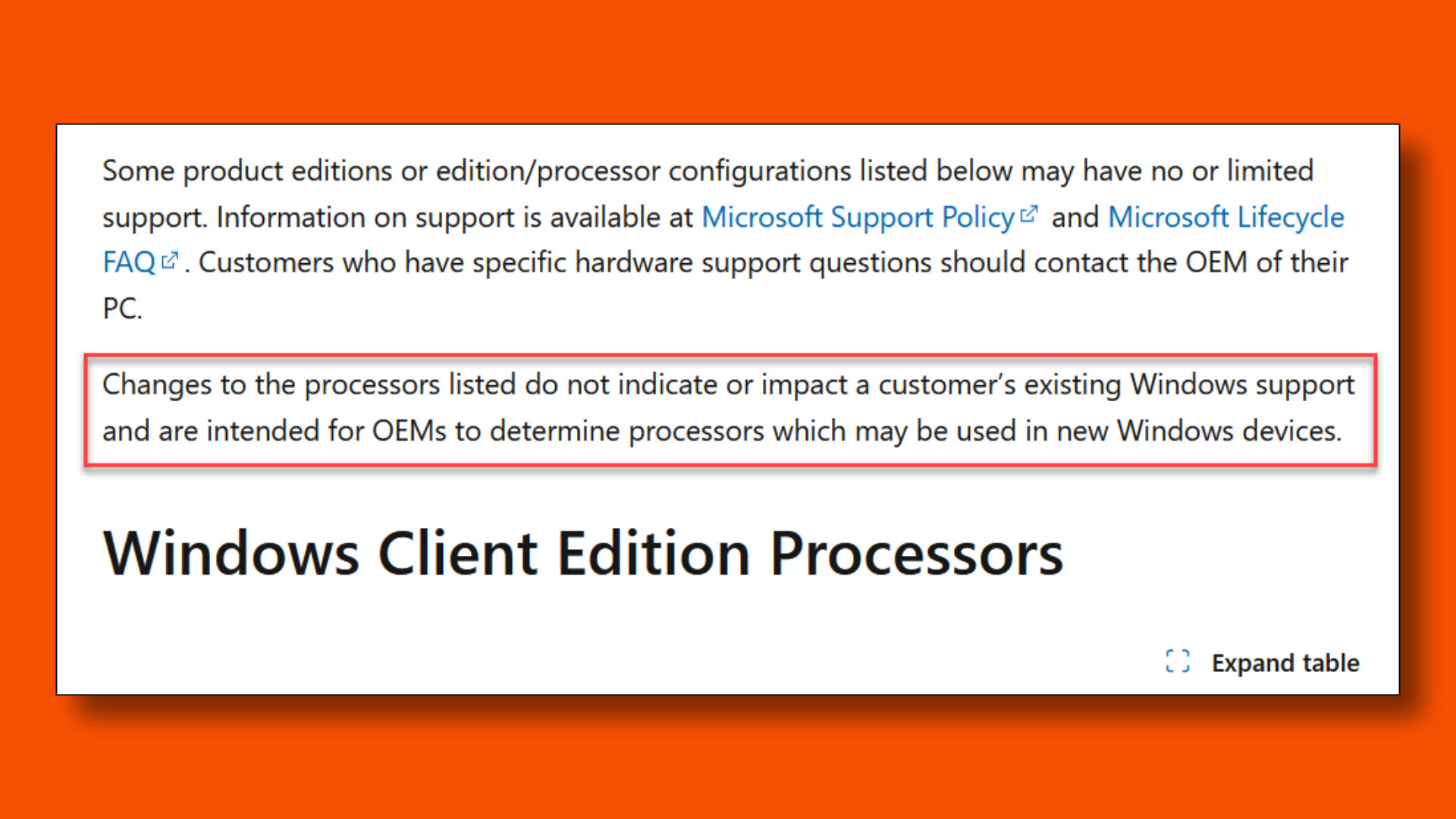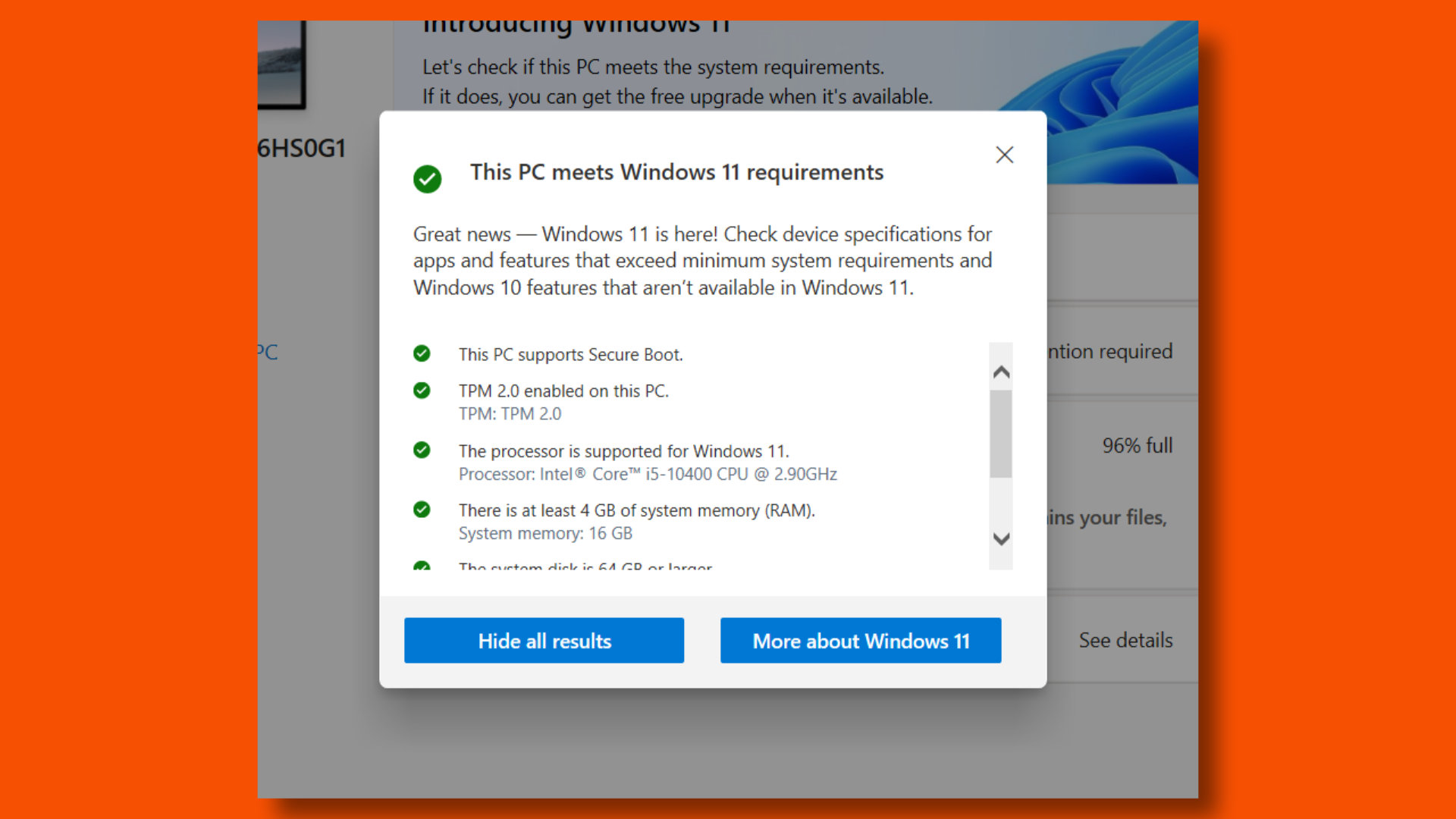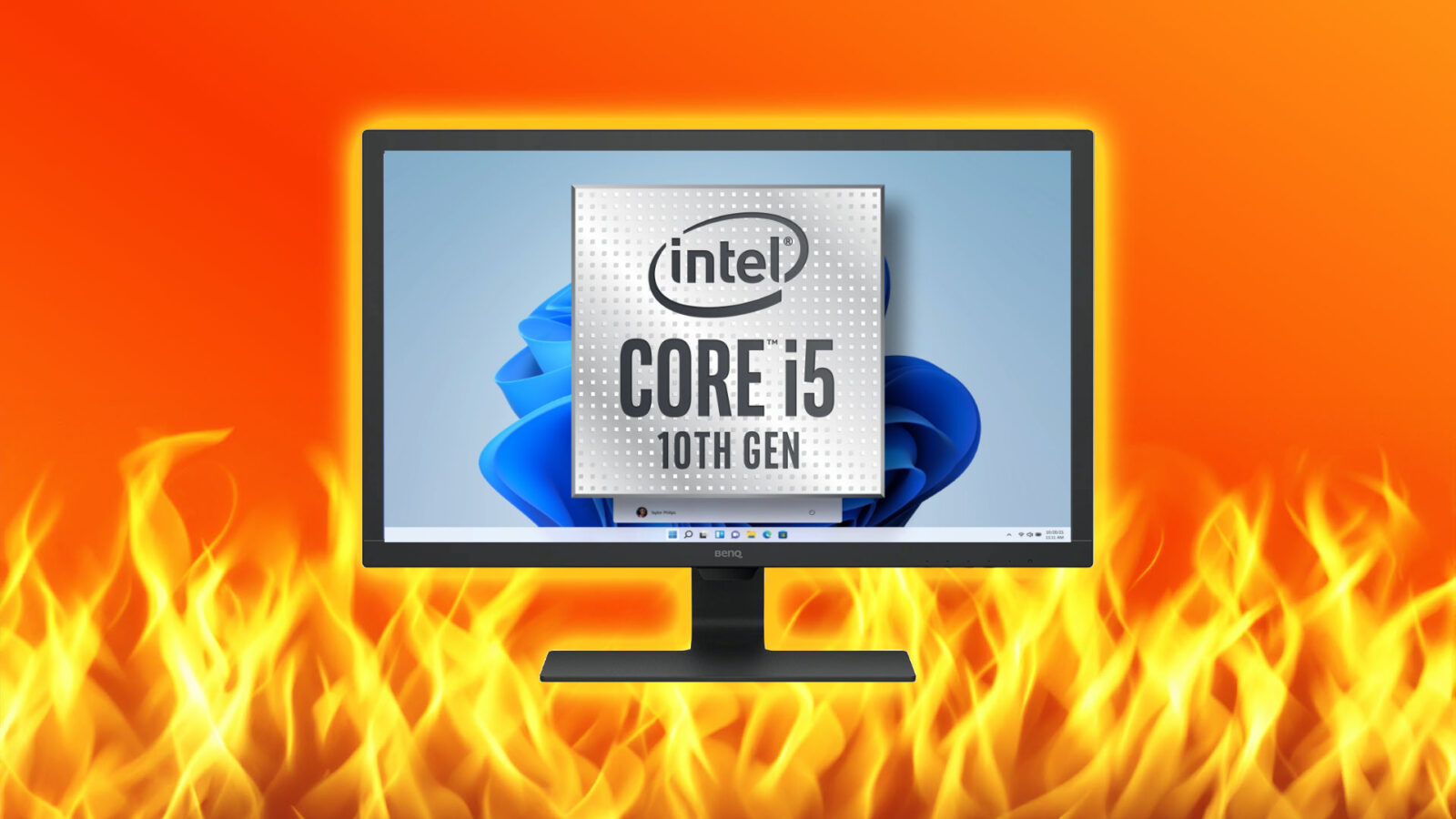Microsoft has quietly dropped 8th, 9th, and 10th-gen Intel gaming CPUs from its new hardware guidelines for Windows 11 PC manufacturers, but gamers don’t need to be too worried. While the company hasn’t made a public statement, its guidelines make clear that these Intel CPUs will continue to work with the latest version of Windows 11, at least for now.
It’s no surprise that Microsoft is leaving these older CPUs out of its future Windows 11 plans. The best gaming PCs on sale are already using newer processors, while these Intel gaming CPUs are now between eight and five years old and are heading towards obsolescence. For gamers with older PCs, however, it’s welcome news that their rigs aren’t destined for the junk pile just yet, even if this is a sign that their PCs are starting to get a little long in the tooth.

This confusion started when Microsoft recently published its list of Intel processors supported by the latest Windows 11 24H2 update, leaving out older Intel 8th to 10th-gen CPUs. While this list is specifically aimed at OEM partners building Windows PCs to sell in stores, it’s also linked in the list of approved CPUs referenced by the official Windows 11 minimum system requirements guide.

This confusion led to discussion online, such as in this Reddit post on the r/technology subreddit, suggesting that these CPUs could see Windows 11 support dropped entirely as a result.
Thankfully, Microsoft has made clear that this isn’t the case, and it shouldn’t be an issue for end users. As it states in the Windows 11 supported CPU guide, these changes “do not indicate or impact a customer’s existing Windows support,” going on to say that the guide is specifically intended for OEM build partners.

Meanwhile, our own test of a Windows 11 PC with an Intel Core i5-10400 CPU shows that Microsoft’s PC Health Check tool continues to have Windows 11 compatibility, at least for this particular 10th-gen processor.
Microsoft hasn’t publicly stated why it removed these CPUs from its official support list, but it may have something to do with Intel’s own support dates. These CPUs are already end of life products, meaning they are no longer in production, and Intel intends to end all support and servicing for 8th to 10th-gen Intel CPUs on June 30, 2025.
This isn’t the first time that Microsoft has dropped CPUs from its support list for Windows 11, either. The enforced requirement for TPM 2.0 – the hardware security component required by Windows 11 – left a lot of PCs without a TPM 2.0 chip unable to upgrade from Windows 10, even if they were relatively new. However, these Intel CPUs do support TPM 2.0, so that isn’t a factor here.
Ultimately, these are older CPUs that have been replaced by several new generations over the last few years, so dropping them from the OEM build list makes sense at this point. Gamers will naturally upgrade and replace their PCs over time, but with these CPUs continuing to support the basic Windows 11 requirements as they appear right now, including TPM 2.0 support, this news means that you shouldn’t have to rush out straight away for a replacement.
However, if you are worried about longevity, our best gaming CPU guide runs through your best options for an upgrade, although you’ll need to make sure it remains compatible with your existing components. If a new PC is on the cards, you can check out our how to build a gaming PC guide for a full run-through of how to build a new rig for modern gaming, from picking out components to installing Windows.
You can also follow us on Google News for daily PC hardware news, reviews, and guides, or join our community Discord to stay in the know.












Leave a Reply